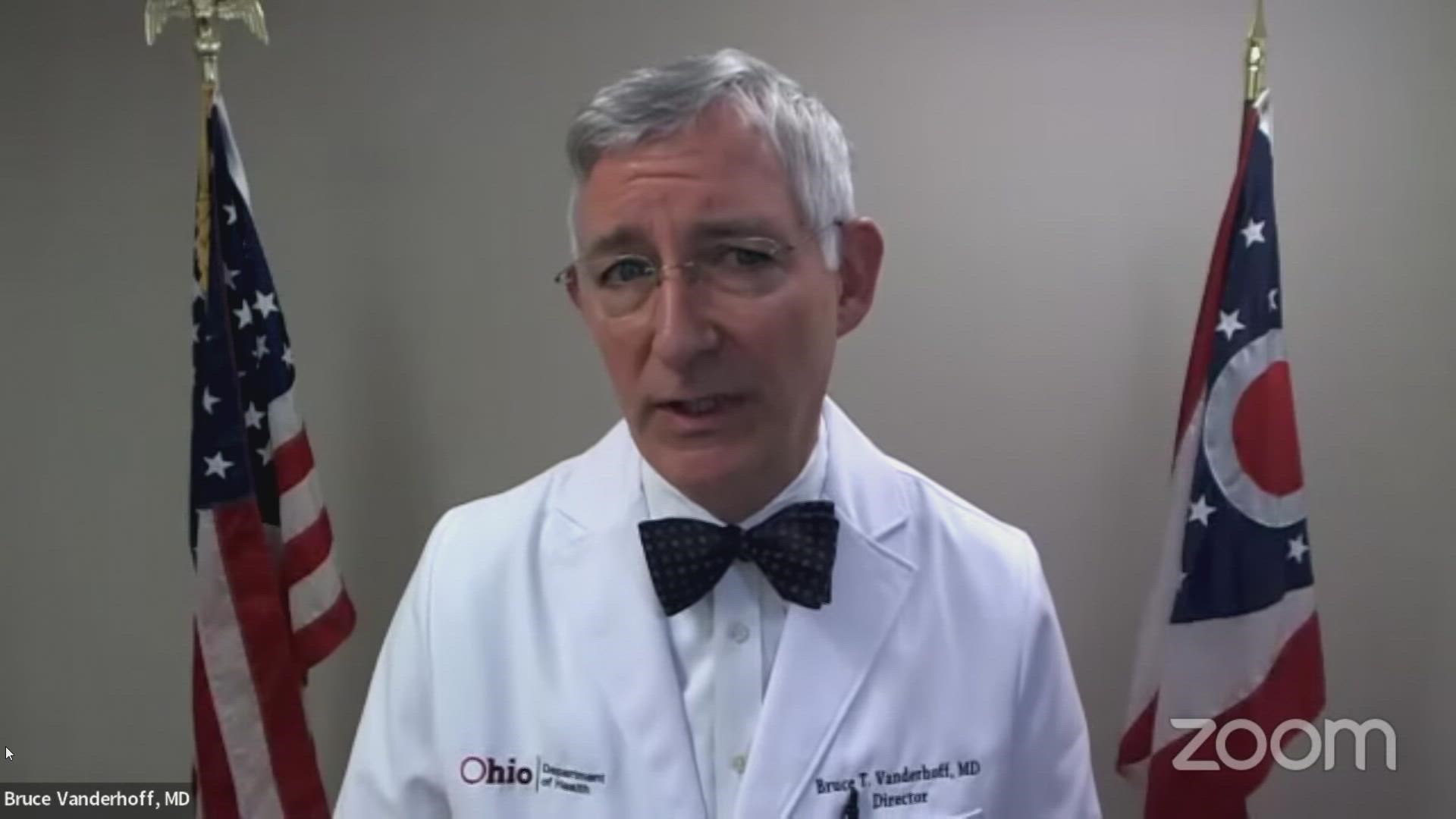COLUMBUS, Ohio — For the fourth straight week in a row, Ohio health officials began Thursday's COVID-19 briefing with good news: Cases continue to decline across the state.
In some parts of the the state, that decline has even accelerated, Ohio Department of Health Director Dr. Bruce Vanderhoff said.
In January, Cuyahoga County health officials reported a rate of 3,000 cases per 100,000 residents. One month later and that case rate has now dropped to 189 cases per 100,000.
Since reaching a pandemic high in mid-January, statewide COVID-19 hospitalizations have steadily decreased; down by more than half as of Wednesday, said Vanderhoff.
In the last week alone, health officials reported an overall 18% decline in hospitalizations.
"A further sign that the omicron variant is, in fact, receding about as quickly as it arose," said Vanderhoff.
According to Vanderhoff, nearly every region in the state is experiencing the drop in both cases and hospitalizations, though portions of southern Ohio have yet to see as sharp of a decline.
Roughly 2,000 Ohio National Guard members were deployed to 62 hospitals and 18 testing sites throughout the state when the omicron variant peaked. That number has since dwindled to roughly 1,200 at 28 hospitals -- mainly in southeast Ohio. The remaining Ohio National Guard members will leave Ohio State Wexner Medical Center Friday.
"While there's no doubt we are quickly moving in the right direction, it's simply too early for us to declare victory given the reality that thousands of Ohioans are still being diagnosed with COVID-19 each and every day," said Vanderhoff.
The briefing comes as Pfizer continues to seek COVID-19 vaccine approval from U.S. regulators for kids between the ages of six months and four years old. That approval could come as soon as Feb. 15 and Ohio Department of Health officials confirmed the state has already begun preparing for vaccine rollout.
According to Sara Bode, a primary care pediatrician at Nationwide Children's Hospital, the children who continue to be hospitalized with serious illness from the virus are almost exclusively unvaccinated.
"It's really important for this vaccine to get approval so that we can allow families to provide that protection," said Bode. Expanded access to the vaccine will help keep all children in quality learning environments, Bode added.
You can watch Thursday's full briefing in the player below:

